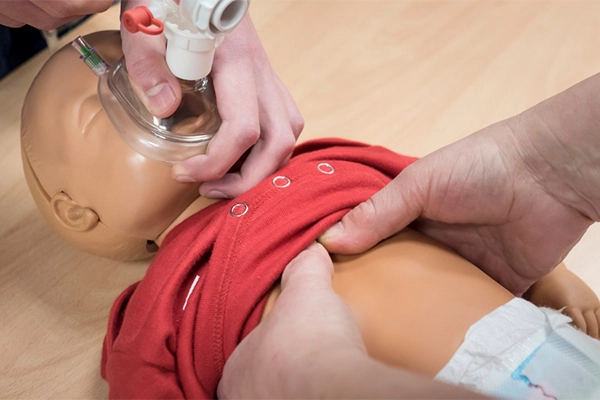Overview
This workshop is a dynamic, hands-on training session that will provide instruction and practice to refine your paediatric skills. Focused on high-risk, low frequency paediatric emergencies, this workshop provides an immersive environment to refine life-saving skills, improve decision-making, and enhance the ability to lead resuscitative efforts in paediatric patients. Instruction is delivered through a combination of skills stations, case-based learning, and simulation.
Learning Objectives
By the end of the workshop, participants will be able to:
- Perform high quality paediatric cardiopulmonary resuscitation (CPR).
- Demonstrate advanced paediatric airway management, including the use of supraglottic airways and endotracheal intubation.
- Accurately interpret common paediatric cardiac rhythms and initiate appropriate interventions.
- Safely administer emergency medications via IV, IO, and ET routes, understanding dose and pharmacologic considerations.
- Operate a manual defibrillator and perform synchronized cardioversion.
- Apply evidence-based post-resuscitation care strategies to optimize neurologic outcomes.
- Participate effectively in team-based resuscitation simulations and performance through structured debriefing.
Workshop Content
- CPR Techniques
- Airway Managment
- Rhythm Recognition and Intervention
- Medication Administration
- Simulation and Case-based Scenarios
Why this workshop matters
Nurse Anaesthetists are often responsible for managing critical paediatric situations. This workshop equips providers with the confidence, precision, and current knowledge needed to respond effectively to paediatric cardiac and respiratory arrest. The focus on skills and scenarios reinforces technical skills but also enhances leadership, teamwork, and rapid clinical decision-making under pressure. By improving advanced paediatric life support competencies, this workshop will ultimately contribute to safer anaesthesia care and improved patient outcomes.


